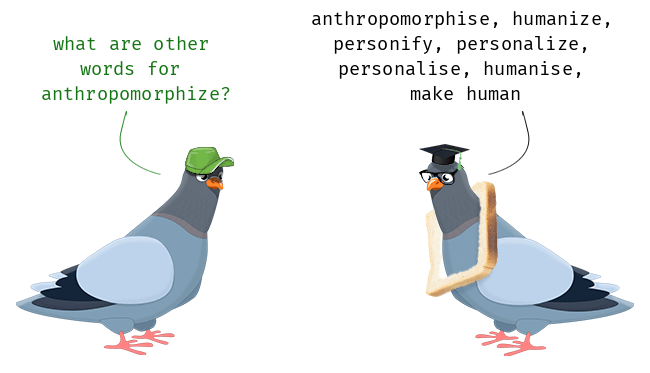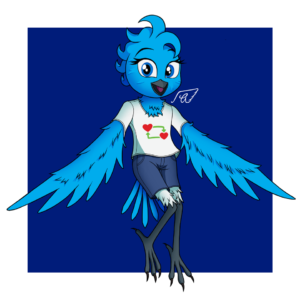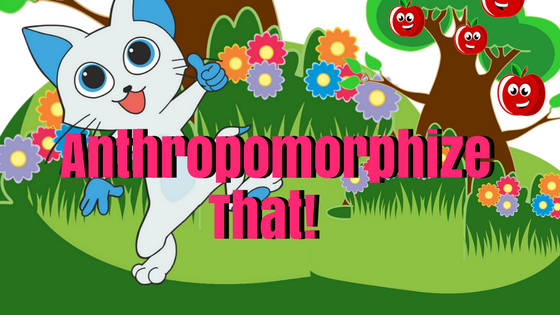In this blog post, we will explore what anthropomorphism is (or what it is to anthropomorphize), its implications, and how to cope with it. We will also look at some self-help tips and tools that you can use to help you manage this concept.
Contents
Understanding Anthropomorphize

Anthropomorphism is the attribution of human form and characteristics to non-human entities. It is a concept that has been around for centuries, and there are many implications of anthropomorphism. To understand anthropomorphizing, we need to first understand what it is.
What Is It To Anthropomorphize
To anthropomorphize is to attribute human form and characteristics to non-human entities. When we do this, we are using our brains to create a mental image of what the non-human entity might look like. This can be done in many different ways, and there are many different types of anthropomorphism.
When we anthropomorphize, our brains are active in many different ways. We are using our imaginations to create a picture of what the non-human entity might look like. We are also using our emotions to connect with the entity and feel empathy for it. Yet, anthropomorphism can be a very powerful tool for connecting with others, both human and non-human.
Anthropomorphism Vs. Dehumanization
Anthropomorphism and dehumanization are two very different concepts.
- Anthropomorphism is the attribution of human form and characteristics to non-human entities.
- Dehumanization is the denial of those same human characteristics to non-human entities.
There is a fine line between anthropomorphizing and dehumanizing. When we dehumanize someone or something, we are stripping them of their human qualities and treating them as if they are not human. This can be very harmful and can lead to violence and cruelty.
Examples of Anthropomorphism
There are many examples of anthropomorphism.
- One example is when we attribute human emotions to animals. For instance, when we say that a dog is happy, we are anthropomorphizing the dog. We are attributing human emotions to the dog and giving it human characteristics.
- Another example of anthropomorphism is when we attribute human qualities to inanimate objects. For instance, when we say that a car is angry, we are anthropomorphizing the car. We are giving it human qualities and making it into something that it is not.
A Classic Example of Disney Movies
In Disney movies, the animals are given human form and characteristics. And we see the world through their eyes. This allows us to connect with them on a deeper level and feel empathy for them.
Types of Anthropomorphism
There are many different types of anthropomorphism. Some of the most common types are:
- Personification: This is when we give non-human entities human qualities. For example, we might say that the wind is blowing or the sun is shining.
- Animalization: This is when we give non-human entities animal qualities. For example, we might say that the wind is howling or the sun is shining brightly.
- Identification: This is when we give non-human entities agent qualities. For example, we might say that the wind is blowing us around or the sun is shining down on us.
- Fantasy: This is when we create a mental image of a non-human entity that does not exist in reality. For example, we might imagine that the wind is a person with a face and personality, or that the sun is a giant creature that lives in the sky.
Causes And Risk Factors
There are many different causes and risk factors for anthropomorphism. Some of the most common causes are:
- Exposure to Disney movies and other forms of media: This is one of the most common causes of anthropomorphism. When we are exposed to images and stories that anthropomorphize non-human entities, it can cause us to do the same thing in our own lives.
- Exposure to animals: When we are exposed to animals, we often start to see them as more than just creatures that move around and make noise. We begin to see them as individuals with personalities and feelings.
- Exposure to nature: When we are exposed to nature, we often start to see the world differently. We begin to see the trees, the flowers, and the sky as more than just objects. We start to see them as living things that are connected to us.
History And Development
Anthropomorphism has been around for centuries, and it has been used in many different ways. Some of the earliest examples of anthropomorphism can be found in religious texts, such as the Bible and the Quran. These texts often use anthropomorphic images to help people understand complex concepts.
Predicting Implications of Anthropomorphism
Anthropomorphism is a complex phenomenon with a variety of implications for both individuals and society. It is important to be aware of the potential implications of anthropomorphism, both positive and negative.

- Increased empathy and compassion: When we anthropomorphize, we often feel more empathy and compassion for the entity. This can lead to increased feelings of connectedness with others and a stronger sense of community.
- A greater understanding of complex concepts: Anthropomorphism can be a very effective tool for understanding complex concepts. When we see the world through the eyes of another person or the eyes of an animal, it can help us to understand them better.
- Improved communication: Anthropomorphism can also help to improve communication between people and animals. When we anthropomorphize an animal, we often start to see them as more than just a creature that moves around and makes noise. We start to see them as an individual with feelings and personalities. This can help us to communicate with them more effectively.
However, it is important to remember that not all non-human entities are worthy of our empathy. We need to be careful not to anthropomorphize harmful or dangerous entities.
When It Goes Wrong
When we anthropomorphize, we are using our imaginations and emotions to connect with non-human entities. This can be a very powerful tool for connecting with others.
Anthropomorphism can go wrong in several ways. Some of the most common ways are:
- When we anthropomorphize entities that are harmful or dangerous: When we give human qualities to entities that are harmful or dangerous, it can make them seem more relatable and even sympathetic. This can lead to decreased feelings of caution and an increased likelihood of injury.
- When we anthropomorphize entities that are not sentient: When we give human qualities to entities that are not sentient, it can make them seem more like objects than living things. This can lead to a decreased sense of empathy and compassion.
- When we anthropomorphize too much: When we anthropomorphize too much, it can lead to a decreased sense of reality. This can make it difficult to connect with other people and the world around us.
NOTE: If you find yourself anthropomorphizing too much, or if you find that it is having negative consequences in your life, it may be helpful to talk to a professional.
Expecting Anthropomorphism In The AI Age

As we enter the age of artificial intelligence, it is important to be aware of the implications of anthropomorphism.
When we anthropomorphize machines, we often start to see them as more than just tools. We start to see them as individuals with their thoughts and feelings. This can lead to several problems, such as, we may start to:
- Trust machines more than we should: If we see a machine as an individual, we may start to trust it more than we should. We may give it too much information or allow it to make decisions that could have harmful consequences.
- Feel empathy for machines: If we see a machine as an individual, we may start to feel empathy for it. This can lead to us making decisions that are not in our best interests, such as choosing to save a machine over human life.
- See machines as threats: If we see a machine as an individual, we may start to see it as a threat. This can lead to us feeling fear and hostility towards machines, even if they are not a threat.
As we enter the age of artificial intelligence, it is important to be aware of the implications of anthropomorphism. We need to be careful not to give machines too much trust, or to make decisions that could have harmful consequences.
Coping With Anthropomorphism

There are many different ways to cope with anthropomorphism. However, some of the most common coping strategies are:
Self-help Tips
Some self-help tips can help cope with anthropomorphism. However, some of the most common tips are:
- Writing in a journal about your experiences
- Drawing or painting about your experiences
- Read books or articles about anthropomorphism
- Talking to a friend or family member about your feelings
- Spend time in nature to connect with the world around you
- Watching movies or TV shows that deal with anthropomorphism
Self-help Tools
Some self-help tools can help cope with anthropomorphism. However, some of the most common tools are:
- Yoga
- Qi Gong
- Mindfulness meditation
Talking To a Professional
If you are having difficulty coping with anthropomorphism, it is important to talk to a professional. Many different types of professionals can help, including therapists, psychiatrists, and psychologists.
How Can They Help
Talking to a professional can help you in many different ways. For instance, they can:
- Teach you coping strategies
- Provide support and understanding
- Help you to understand your experiences
Therapies
Many different therapies can help cope with anthropomorphism. However, some of the most common therapies are:
- Group therapy
- Psychodynamic therapy
- Dialectical behavior therapy (DBT)
- Cognitive-behavioral therapy (CBT)
Medications
Many different medications can help people cope with anthropomorphism. However, some of the most common medications are:
- Antidepressants
- Mood stabilizers
- Anti-anxiety medications
Conclusion
Anthropomorphism is a complex concept that can have a variety of implications for our lives. Thus, it is important to understand what anthropomorphism is and how it can affect us. Since, when we understand anthropomorphism, we can better cope with its effects and use it to our advantage.
A Word From Therapy Mantra
Your mental health — Your psychological, emotional, and social well-being — has an impact on every aspect of your life. Positive mental health essentially allows you to effectively deal with life’s everyday challenges.
At TherapyMantra, we have a team of therapists who provide affordable online therapy to assist you with issues such as depression, anxiety, stress, workplace Issues, addiction, relationship, OCD, LGBTQ, and PTSD. You can book a free therapy or download our free Android or iOS app.


